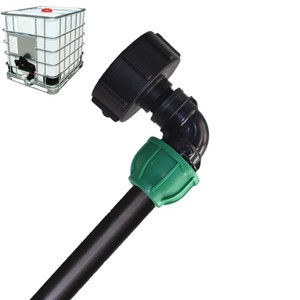Introduction to PE Pipe Joint
The PE pipe joint is an essential component in the plumbing and construction sectors, enabling the seamless connection of polyethylene piping. These joints are designed to ensure a secure, leak-proof, and reliable interface between pipes, catering to a variety of applications including water supply, irrigation, and gas distribution. Understanding the unique features and benefits of PE pipe joints can help professionals make informed decisions that optimize performance and longevity in their plumbing systems.
Types of PE Pipe Joints
PE pipe joints come in several types to accommodate different pipeline configurations and applications. Each type offers distinct advantages:
- Socket Fusion Joints - Ideal for joining pipes of the same diameter through a heating element that melts the pipe ends.
- Electrofusion Joints - Use a special fitting embedded with heating coils that melt the pipe and fitting to form a strong bond when electrical current is applied.
- Mechanical Joints - Feature a gasket and clamp method to mechanically secure two pipe ends together, allowing for easy disassembly.
- Butt Fusion Joints - Involve heating the ends of two pipes and pressing them together, offering very high strength, making them suitable for high-pressure applications.
Applications of PE Pipe Joints
The versatility of PE pipe joints makes them suitable for various applications across different industries:
- Water Supply Systems: Used extensively in municipal water distribution networks, ensuring a continuous and leak-free supply.
- Irrigation: Commonly employed in agricultural irrigation systems for efficient and reliable water distribution.
- Gas Distribution: Suitable for natural gas and propane systems, ensuring safety and durability in gas piping.
- Industrial Applications: Used in chemical processing plants where resistance to corrosion is essential.
Features and Advantages of PE Pipe Joints
When it comes to choosing PE pipe joints, a multitude of features and benefits elevate their standing in the market:
- Durability: Made from high-density polyethylene (HDPE), these joints resist wear and tear, providing a long lifespan even in harsh environments.
- Corrosion Resistance: Unlike metal joints, PE pipe joints do not corrode, making them ideal for chemical and water applications.
- Flexibility: The inherent flexibility of polyethylene allows these joints to withstand ground movement, minimizing disruption from environmental conditions.
- Ease of Installation: The various joint types contribute to quick and straightforward installations, saving time and labor costs.
- Cost-Effectiveness: With long service life and low maintenance costs, PE pipe joints represent an economical solution for both contractors and end-users.

































































































































































































